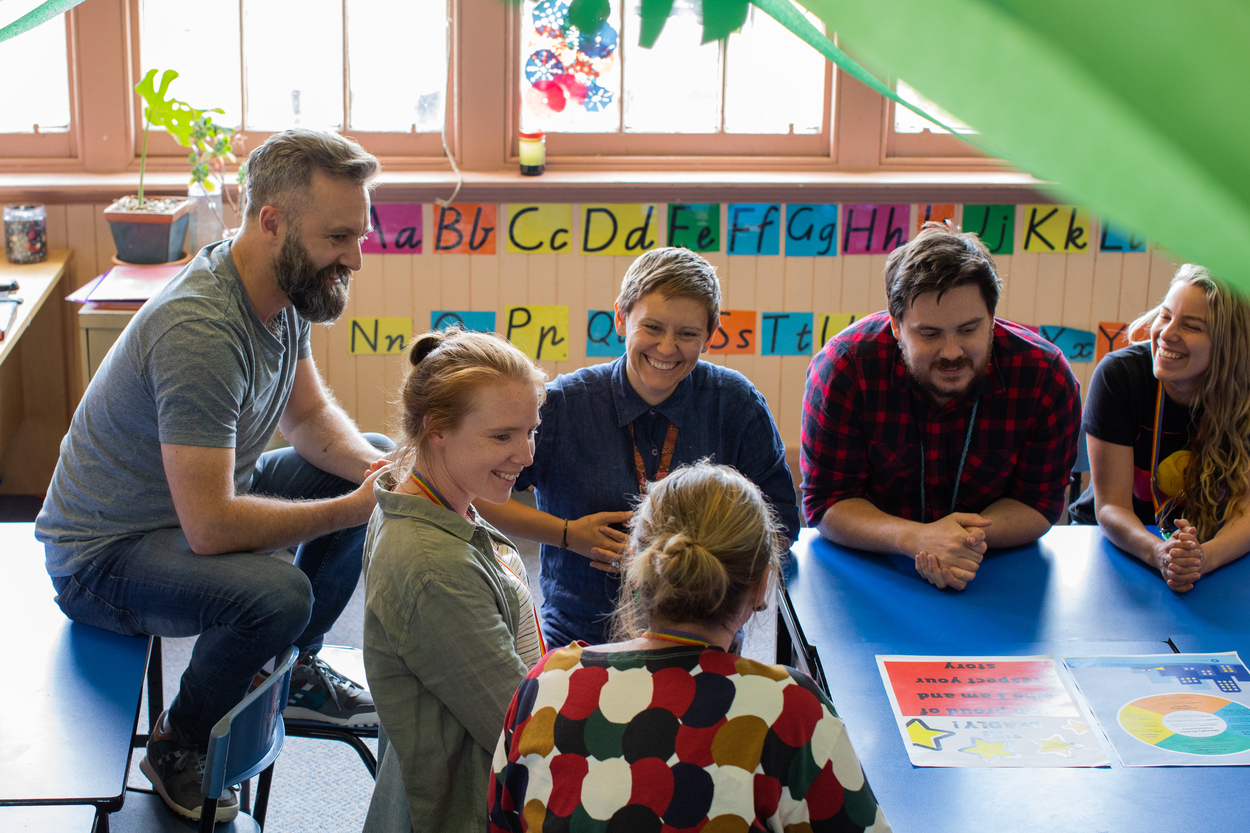On this page
Download this Fact Sheet:
Fact Sheet: Trauma informed strategies for educators (3.1 MB, PDF)
Educator wellbeing
For educators, look after your own wellbeing after a traumatic event. For example:
- Take the time to consider how your own stress presents and signs to look out for. Share these with important people in your life so they know when to help you draw on their support.
- You might also like to share your own need for support with your colleagues if you feel this would contribute to an open and supportive work environment.
- Be aware of your Employee Assistance Program and use sessions to support your mental health.
Trauma-informed strategies
Trauma-informed practices for educators involve creating a sense of safety in your learning community.
Safety starts with establishing relationships with a child or young person, and their family.
This can be fostered even though routines in the early learning service or school may be disrupted or challenging to re-establish after a natural disaster or other traumatic event in the community.
Supporting children in early learning
When supporting babies and toddlers up to age 4 or 5 as part of disaster recovery, focus on caring and responsive relationships.
Strategies to facilitate this include:
- Tuning in to the baby or toddler’s cues to be led by their needs and to notice any changes in their behaviour.
- Following up or seeking additional support when you notice changes in a child’s behaviours that persist, or that are causing the child significant distress or regression in development.
- Emphasising children’s strengths and abilities. You can do this through play or activities, naming what they’re doing well, encouraging their efforts and celebrating their achievements.
- Involving children in decision-making. For example, giving them a choice of activities to participate in or letting them choose which book to read along with.
- Displaying children’s work so they can see themselves in the space, and feel a sense of belonging.
- Setting and communicating clear expectations of behaviour. Post-disaster, this structure is helpful for supporting recovery.
- Limiting their exposure to media to avoid reminders of the bushfire, flood or other traumatic event, and using play and storytelling to support their expression.
Supporting children and young people in schools
School-age children and young people may keep thinking about the traumatic event, and may have more complex emotional responses, including sadness, difficulty concentrating, guilt, fear or anger.
Educators can support the recovery of children and young people by recognising that each child or young person is different and will respond differently.
Educators can also foster a sense of community and belonging and promote independence to support recovery for children and young people.
Strategies to facilitate this include:
- Talking about the natural disaster or traumatic event, while understanding some children or young people may not be ready to do so. Remain calm and convey the message that the threat is over.
- Facilitating a peer-to-peer support network (cross-age tutoring, transition buddies or playground mentors). Consider the impacts of the traumatic event in the community on children and young people and their capacity to be a supportive buddy.
- Providing choices and involving children and young people in decision-making to restore their feeling of control. For example, provide a choice of assignment topics or brainstorm classroom or extracurricular activities with them.
- Encouraging cooperation and social connection in classrooms by working in pairs and groups. Young people may enjoy working together on a passion project or community event.
- Setting and communicating clear limits and expectations of behaviour. Post-disaster, this structure is helpful for supporting recovery.
- Acknowledging adversity. For example, support children to identify and use their strengths in a challenging time, or who they could call on for help when experiencing adversity. Plan ahead for potentially distressing milestones, such as anniversaries or memorials.
-
External links
Birdie’s Tree, Queensland Centre for Perinatal and Infant Mental Health , Children’s Health Queensland
Helping students recover after trauma: Classroom activities, Emerging Minds, Australia, 2018
How educators can help in the classroom following a traumatic event, Emerging Minds and The University of Queensland, Australia, 2019
